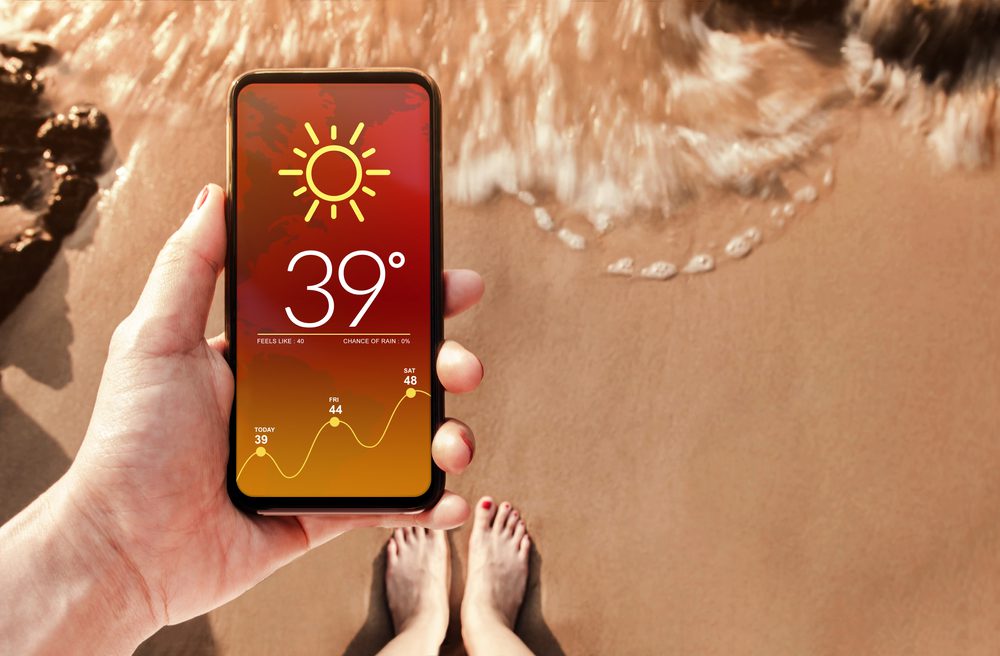Can we blame ourselves for having these scorching summers? Why is this the hottest summer in history? Read the answers here!
Every year, billions of people are suffering from global warming and the fact that summers are becoming unbearable. Starting with the second half of May and sometimes depending on the area, going up to the first week of October, heat waves are something that affects everybody. And the bad news is that the climate crisis is here to stay for the future as well.
If you’re living in the U.S., then you probably know that in the past years, hell broke loose and temperatures nearly approached 120 degrees Fahrenheit. Several days in early July broke world records for temperatures. Since records have been kept since 1850, June was the hottest month on record for the whole world. The issue is that not only is the air oppressively hot, but so are the waters!
Let’s examine the impact of heat waves on us and the scientific perspective on the matter:

Heat waves can be deadly
One important thing to know about this hottest summer in history is that we are alarmingly close to deadly hazards. According to scientists, extreme temperatures can be deadly if they last more than two days in a row because they put a lot of stress on our bodies and the brain.
While everybody is sensitive to extreme heat, children and seniors are more vulnerable. That’s why it’s crucial to have an air conditioner installed in the house or a fan to make the living space a tad more comfortable, and of course, avoid going out between 11 a.m. and 7 p.m. unless it’s necessary.
Believe it or not, annually a lot of people die from heat, and this year in the Southwest, those states that experienced an intense wave of high temperatures resulted in the deaths of around 12 people. That’s insane! This is definitely the hottest summer in history!
“Heat domes” have settled over parts of the world
What is known as a heat dome traps the oppressive heat. When La Nina effects combine with severe, high-pressure atmospheric conditions, enormous stretches of scorching sunshine are produced and confined behind the high-pressure “dome.” Now, the asphalt in the cities, the sand at the seaside, or the ground in general basically “bake” in the sunlight. That’s why if the rising temperatures persist for a couple of days, the air will become unbearable.
Not only Europe is affected by this heat dome, but part of the U.S., including California, Arizona, and Florida, is now “baking” under the scorching sun! Are you close to these areas? Tell us in the comments how you survived the hottest summer in history, which is not over yet.
The atmosphere is full of carbon dioxide
Around 2 years ago, scientists from Hawaii discovered that the concentration of carbon dioxide has been higher since the ’50s. And the worrying part is that we are halfway to doubling the concentration in the future. Sheesh, that’s bad, very bad!
Additionally, according to the reports, the last time our planet recorded a higher level of carbon dioxide was three million years ago, when the climate was completely different and the sea levels were several meters higher than they are now.
The only time the levels were down was between 2020 and the first part of 2021, when, due to the COVID-19 pandemic, everybody was forced to spend more time indoors to avoid crowds and public transportation. While we were stuck in our house, nature was happy to see an improvement…Now, can someone argue that humans are definitely contributing to destroying the planet in one way or another?
Heat waves are becoming more extreme due to the effects of climate change
We have a lot of scientific explanations for what a “heat wave” means, but are we really aware of why this is the hottest summer in history? Well, the answer is simple, and we guess you probably figured it out by now: climate change. Humans have always tried to improve their lives by inventing certain things (cars, factories) and extending the living space up to forests by minimizing the environment for wild animals, and we don’t seem to stop doing this anytime soon. However, these actions have major consequences, and climate change is definitely one of them.
According to the world’s top climate scientists, if we don’t reduce the use of fossil fuels and clear carbon dioxide from the atmosphere, we will face some serious changes, even worse than what we have to deal with at this moment, and the heat from 2023 will seem like a minor issue compared to what’s coming.
The scorching heat is a lot worse in the cities
Are you an urban citizen? Then you probably know that in the middle of a metropolis, the heat wave is even worse! But why is this happening? Well, the sad truth is that this is the worst man-made damage since the vegetation in most of the big cities is almost gone and replaced by skyscrapers. On the ground, we have asphalt and pavement that absorb heat easier compared to soil and grass, causing the temperature to rise in an instant.
While many places are considered “Instagrammable,” and the taller the buildings, the prettier the pictures, we rarely think about how bad they are for the environment. In big cities, temperatures can reach 80°F, compared to 65°F in surrounding areas. What a huge difference!
Climate change has been a burning issue since long ago, but we don’t seem to learn from our mistakes, and instead of making the world a better place, the situation seems to get worse day by day. If you are curious about a better explanation of this phenomenon, check out Global Warming: The Great Deception, written by Guy K. Mitchell Jr. This book has a very good score on GoodReads and a super price on Amazon. Hurry up if you want to get it at a good bargain!
Arctic sea ice is rapidly decreasing
For us, it may be the hottest summer in history since 2016, but what about the wild animals that are living near the Arctic Sea? Well, according to various studies, statistics about the quality of life in the area are pretty disappointing.
Temperatures here are rising very fast, faster than anywhere else in the world, and because of that, all the ice is slowly melting away. And the bad news doesn’t stop here! Scientists say that by the end of 2050, the area will be practically free of ice. So what will happen to all the animals that live there? …we guess you already know the answer.
66% of all extreme weather changes were influenced by humans
The news of this year being the hottest made us all worried and skeptical about what the future holds, but did you know that the number of natural disasters and extreme weather events has doubled since 2004? And who’s fault is this? It’s true that we can’t really control nature and what’s happening, but climate scientists believe that humans might have a big influence on heat waves, storms, floods, and droughts.
What do you think about this? Do you agree with this statement?

If the summer of 2023 is considered the hottest summer in history, get ready for 2024!
The US Climate Prediction Center said earlier this summer that it had found signs of El Nino, a widespread climate phenomenon brought on by warm water extending around the center of the earth in the Pacific Ocean. This phenomenon influences the overall atmospheric pressure, and according to studies, this will contribute to rising temperatures above the limit of 1.5 degrees.
The El Nino phenomenon could bring chaos to global weather systems like never before. And if what happened in Greece, Australia, and other countries where temperatures were critically high, by the end of 2025, scientists predict that more and more countries will become more flammable due to climate change.
Although the future is uncertain, one thing is for sure: the world as we know it might cease to exist in a few years if we don’t do our best to protect it!
If you enjoyed reading about why is this the hottest summer in history, you may also find it interesting to read Black Holes: The Scariest Thing in the Universe. 9 Reasons Why














